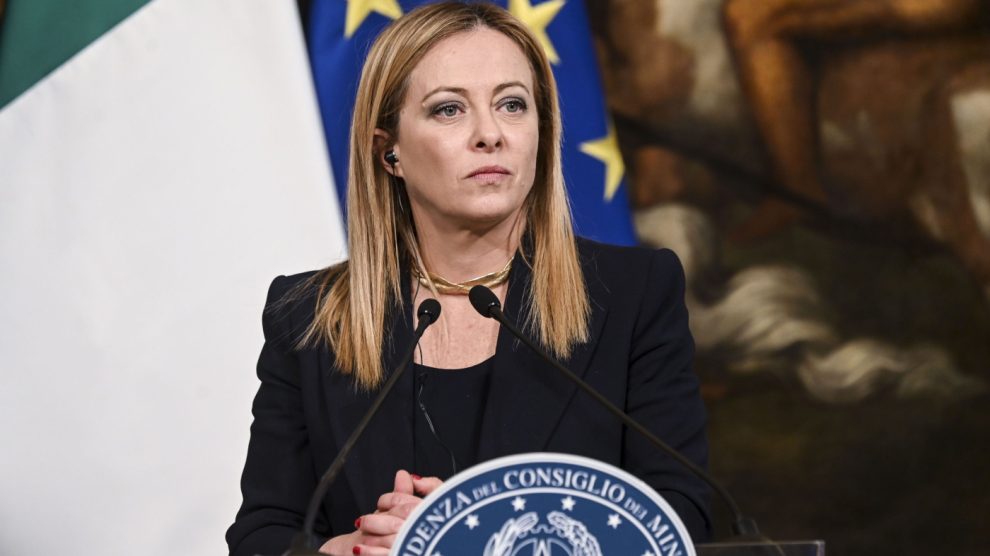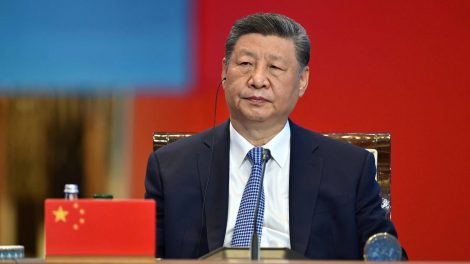Rome reaches out to Tripoli. Italy’s diplomatic tour de force in the Mediterranean stops in Libya. Prime Minister Giorgia Meloni’s trip is not yet officially confirmed for security reasons, but it will probably happen very soon. It’s an unavoidable appointment, with a profound strategic value, given the Libyan dossier’s value for Italian foreign policy.
- PM Meloni is following a well-established tradition: for some time, visiting Libya has always been among the first foreign appointments for Italian PMs. Also, the critical internal situation requires Italy to demonstrate its presence.
Internal clashes and Wagnerites. Libya’s internal conditions of insecurity are complex because they are altered by potential destabilisation from outside. Hence why they are of utmost attention for Italy and beyond: recently, CIA Director William Burns travelled to Libya (and Egypt) with a focus on Russian activities. The country is once again divided between two executives, both lacking sufficient legitimacy to govern the country on their own – even if they wanted to do so by force.
- Moreover, actors with competitive interests – including Russia – remain active on Libyan soil. Local sources tell Decode39 that Russian contractors from the Wagner Group have been spotted in the Sirte area, where they have been quartered for some time.
- They are there because of an agreement with the militia forces in Benghazi. An understanding that has been active since at least 2018 but became mainstream during the assault on the UN-backed government in Tripoli (April 2019 – October 2020).
- There were rumours of their re-deployment to bolster the invasion in Ukraine, where Wagner plays a frontline role. But Libyan sources explain that the Russians never actually left – a telling sign of Moscow’s interest in guarding the dossier and the region.
The energy dossier. Everything becomes even more decisive when considering that an agreement on natural gas between Italy’s Eni and Libya’s National Oil Company could be made official during PM Meloni’s trip. There is talk of developing an offshore reservoir through an $8 billion investment. Eni didn’t comment on the news released to the Libyan media by NOC President Farhat Bengdara.
- Italy is considering increasing Libya’s weight in its own energy security (which is also European). On the other hand, pointed out Federica Saini Fasanotti – historian and expert on the Mediterranean area at the Brookings Institution – energy deals have been among the few to have worked in Libya during this complicated decade. Also thanks to the work of companies like Eni, whose economic-commercial activities always had a socio-political dimension too.
The way ahead (and the roadblocks). “The issue remains to match these relationships with assistance in internal developments that can lead to real stabilisation,” she explained to our sister website, noting that just holding elections might not suffice. “On the contrary, if the voting process is not well managed, it risks being even more destabilising and opening further fault lines between winners and losers.” Libya, she argued, needs “help in building a long-lasting internal fabric, which is only possible through the establishment of democratic institutions and the isolation of toxic elements that act as destabilising actors.”
- Investments that countries like Italy are promoting might be a suitable way forward, but that’s no certainty either. “Let’s take Algeria, a country that Italy has elevated to the status of first energy supplier and strategic partner: a very important rapprochement,” although we must keep in mind that Algeria is rife with internal disputes over power management. “A situation that, as we have already seen with the Arab Springs and the fall of Muammar Gaddafi, can lead to heavy destabilisation.”
Thus, the long-term challenge is to maintain and stabilise internal conditions. Also, the increase of economic revenues in countries like Algeria could foster stability by improving living conditions (economic reforms, subsidies, youth employment) – social pacts that have very delicate balances.
Watch out for Moscow. Moreover, in the case of both Libya and Algeria, the Russian presence should not be forgotten. “Relations between Algiers and Moscow are decades-old and military interference in the country’s political life is equally well-established,” explained the Brookings expert. “Further rapprochement with Russia would certainly be exploited to increase tensions with Morocco and the nations that support it, as has already happened with Spain.”
- Algeria sees the diatribe with Morocco over Western Sahara as a frozen conflict, particularly sensitised by the recognition that Rabat received with the Abraham Agreements.
- Italy’s role is delicate, but it could allow Algiers to have an important window of dialogue with Europe and the West. This is, in some ways, the profound sense of Rome’s plan to extend its reach in the region.
Rome, the diplomat. The concept of Italy as a bridge for dialogue was brought forth by ministers Antonio Tajani (Foreign Affairs) and Guido Crosetto (Defence) on their recent trips to Tunisia, Turkey and the Balkans. Ms Fasanotti noted those are all “complex and articulated situations,” in the face of which Italy “has the opportunity to push its interests and policies based on certain awarenesses.”




